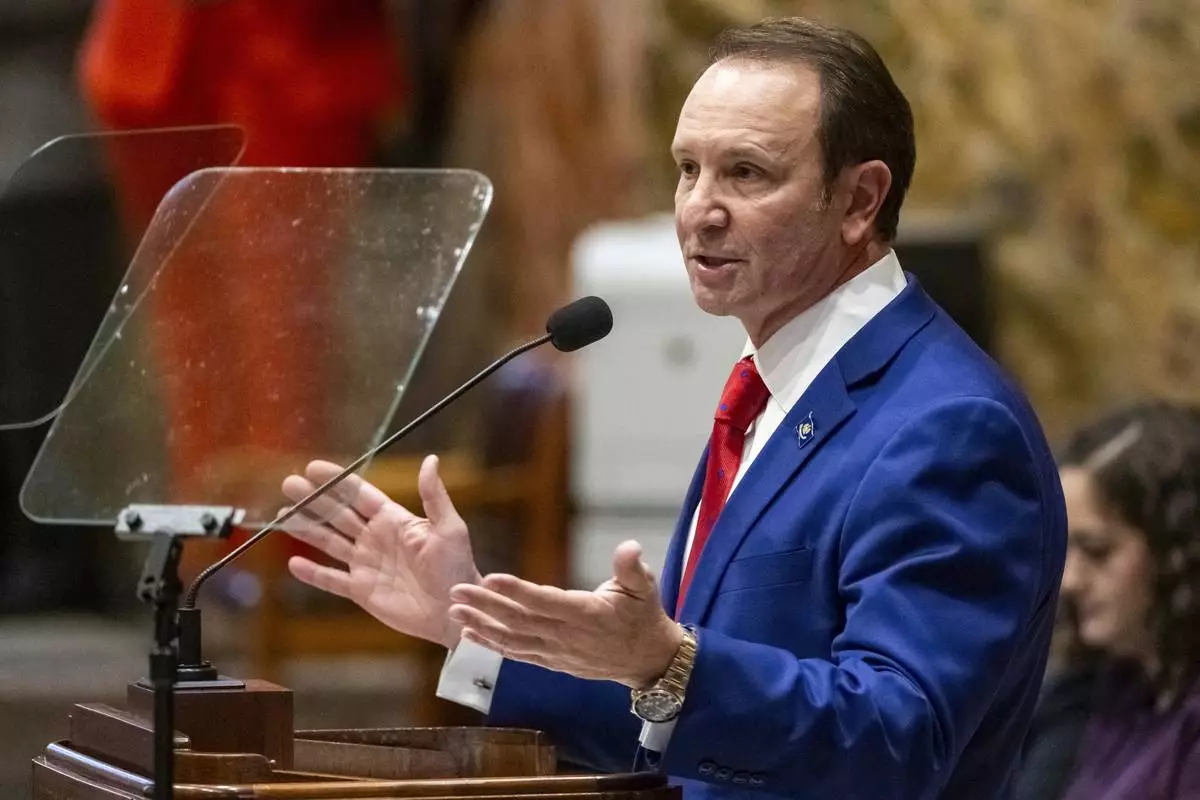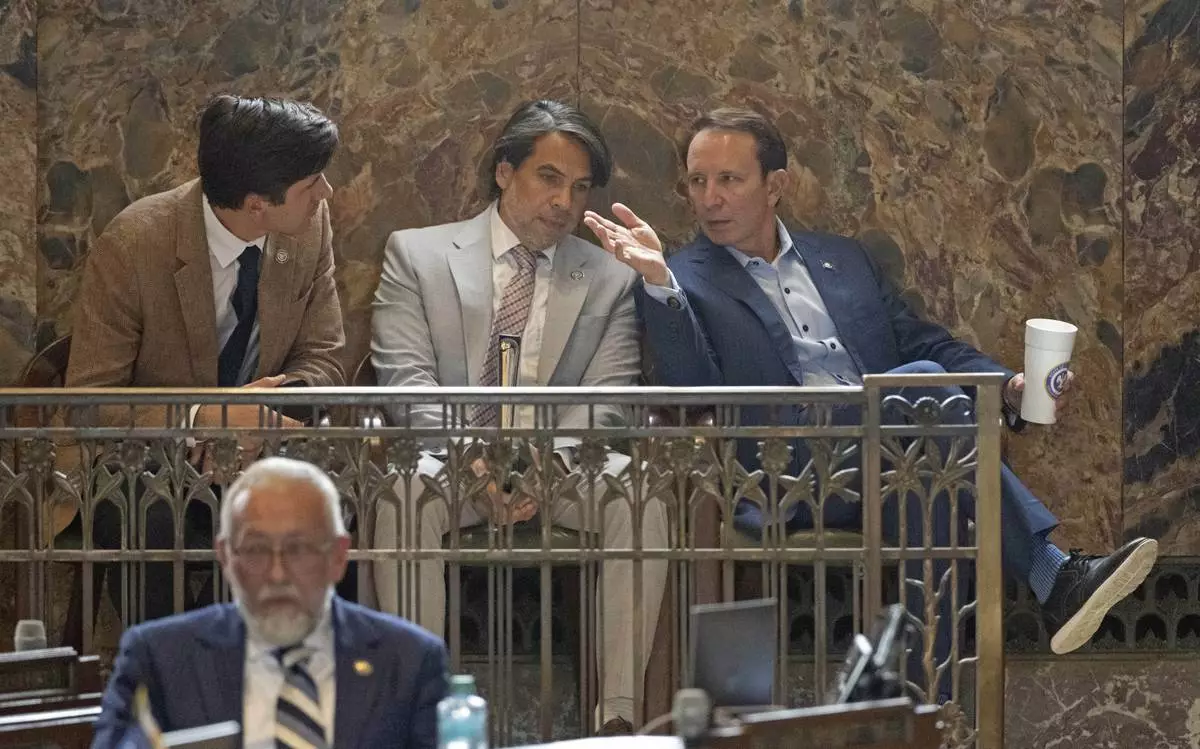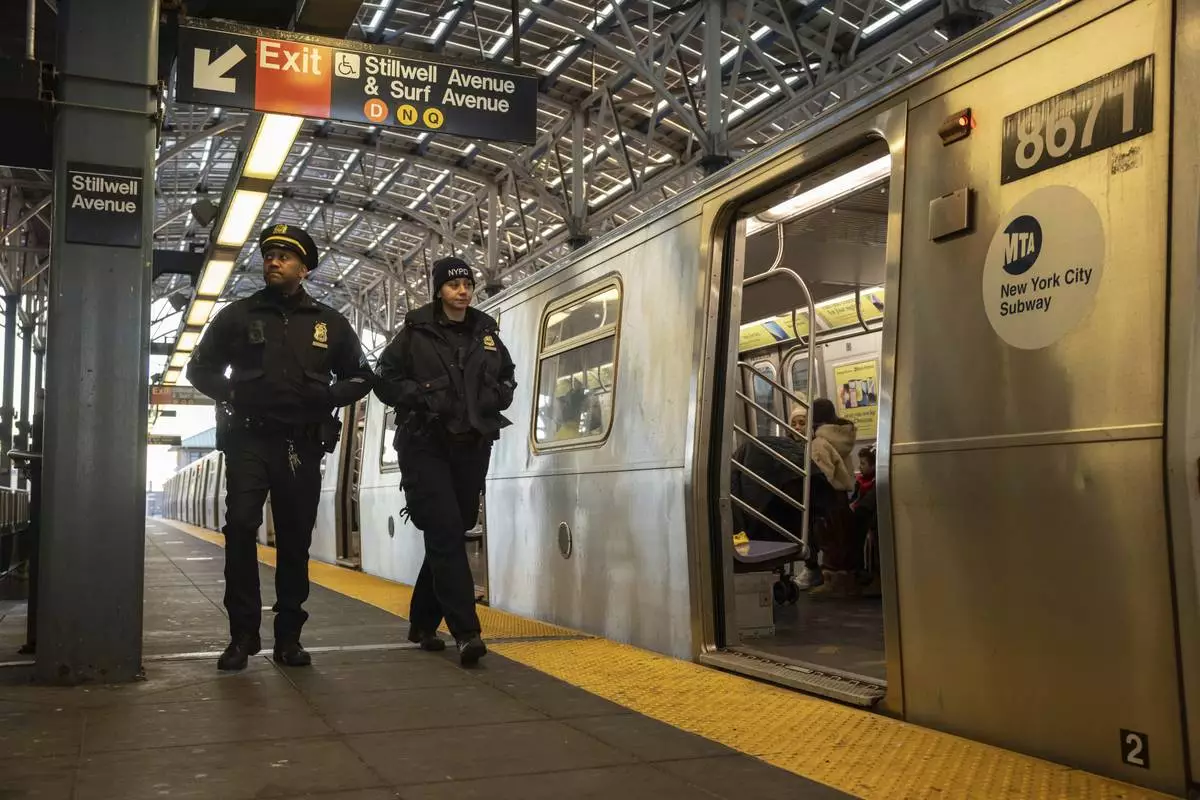BATON ROUGE, La. (AP) — Louisiana's GOP-dominated House of Representatives on Tuesday overwhelmingly passed individual and corporate tax cuts, along with a constitutional amendment — all key provisions in Gov. Jeff Landry's sweeping tax reform package, the centerpiece of the state's third special legislative session of the year.
The House voted 87-12 to flatten individual income tax to 3%, while increasing the standard deduction to $12,500 for individual taxpayers.
Pushback came entirely from Democratic lawmakers, some of whom have argued that they consider the reforms to provide only token relief to lower-income households while leading to a $1 billion annual revenue hole.
Republican Rep. Julie Emerson, the bill's sponsor, said the individual income tax cuts are necessary to spur economic growth, staunch outward migration and keep Louisiana competitive with nearby states like Florida and Texas which have no income tax.
Other bills, set to be voted on by the House later this week, would attempt to offset the proposed individual income tax cuts by ending a range of tax exemptions and expanding sales taxes across dozens of services, from dog-grooming to lobbying, as well as digital goods like Netflix and other streaming platforms. It would also make permanent a 0.45% sales tax and 2% business utilities tax that had been set to expire.
“I think that we are allowing our citizens to make a choice as to how they pay their taxes by choosing the services and the goods that they purchase,” Emerson told her colleagues on the House floor.
The House also voted to repeal the 0.275% corporate franchise tax — essentially a levy on conducting business in the state — which Republican lawmakers have decried as dampening investment prospects.
Democratic House Minority Leader Rep. Matthew Willard indicated the benefits of this tax cut, which would cost the state more than $500 million in annual revenue, would go to the shareholders of large corporations who are likely not based in the state.
Emerson countered it will go to businesses that “create jobs in Louisiana.” Supporters have pointed out that the vast majority of revenue from the tax is not allocated to the state's general fund. They say abolishing it would not have a significant impact on budget decisions.
The House voted favorably on another bill aimed to court businesses, passing legislation incentivizing local governments to exempt taxes on corporate assets in exchange for one-time payments from the state between $1 million and $15 million.
Lawmakers on both sides of the aisle, representing parishes heavily reliant on those taxes for funding schools and law enforcement, expressed skepticism that local governments would take the bait.
“Why would they ever opt out of something like this, where they're going to give up a revenue stream that's existing in exchange for a one-time buyout,” Republican Rep. Michael Robert Bayham said in an Oct. 10 committee hearing to discuss the bill.
“I think the inventory tax really punishes all the businesses that are there,” Department of Revenue Secretary Richard Nelson said.
The exemption would offer an incentive for businesses to locate in less economically developed parts of the state and would likely be a worthwhile tradeoff for parishes with small amounts of existing corporate asset revenue, he added.
Along with advancing the tax cuts, the House voted in favor of a constitutional amendment intended to simplify the state's convoluted tax code.
The amendment would enable a proposed $2,000 permanent teacher salary raise by removing constitutional protections for several education trust funds and drawing on their assets to pay off early approximately $2 billion in debt owed to the state's teacher retirement fund.
In addition, the amendment allows for the merger of two rainy day funds, leaving less money locked away for savings and more corporate tax and mineral revenue available for spending. It also doubles standard tax deductions for seniors, eliminates local taxes on prescription drugs and requires the legislature to reach a two-thirds majority for future tax breaks.
House lawmakers passed another bill, introduced by Republican Rep. Brett Geymann, which would place limits on how much the Legislature could allocate for recurring expenses each year.
The bills will now advance to the Senate for review. On Wednesday, the House is scheduled to debate proposed sales taxes intended to help pay for the tax cuts.
Brook is a corps member for The Associated Press/Report for America Statehouse News Initiative. Report for America is a nonprofit national service program that places journalists in local newsrooms to report on undercovered issues. Follow Brook on the social platform X: @jack_brook96

FILE - Louisiana Gov. Jeff Landry speaks during the start of the special session in the House Chamber, Jan. 15, 2024, in Baton Rouge, La. (Michael Johnson/The Advocate via AP, Pool, File)

Louisiana Governor Jeff Landry, from right, speaks with his Deputy Chief of Staff, Legislative Affairs Lance Maxwell and legislative liaison Richard Brazan on the House floor during a special legislative session, Tuesday, Nov. 12, 2024, at the Louisiana State Capitol in Baton Rouge, La. (Hilary Scheinuk/The Advocate via AP)










